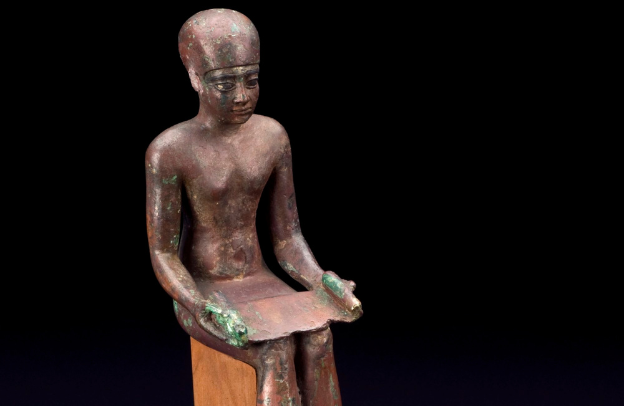15 African Quotes About Good Leadership And Why They Are Important

In Africa today there is an urgent need for quality leadership. As the continent continues to attract greater interest from multinationals and African companies expand their operations, the ability to grasp the distinct values, behaviors, and the right attitudes is becoming more urgent to steer the continent into a new future. This is where good leadership comes into the game and most importantly, the leadership that is based on African philosophy and the true values of the people. Now, let’s spend some more time on that.
Want to learn more about storytelling? Start by downloading the first chapter of The Storytelling Mastery.
Why Do Society Need Good Leadership
Every society, irrespective of its size, complexity, or historical context, relies on good leadership to navigate the myriad challenges and opportunities it encounters. Effective leadership serves as the guiding force that steers communities toward shared goals, fosters social cohesion, and cultivates resilience in the face of adversity.
Whether in the realms of politics, economics, or social affairs, adept leaders provide the vision, direction, and stewardship necessary to mobilize collective efforts, mitigate conflicts, and promote the well-being of all members.
Also, good leadership instills trust, inspires confidence, and engenders a sense of accountability among the people. They help lay the foundation for sustainable progress and equitable development in the society.
You might also want to see Bassirou Diomaye Faye: Emergence of Youthful Leadership Signals Hope for Senegal’s Future
In essence, the presence of strong, ethical leadership is indispensable for the flourishing of societies, because it catalyzes positive change and the realization of collective aspirations.
Now, let’s look at 15 African quotes about good leadership and their meanings.
The 15 African Quotes About Good Leadership
- “Good behavior must start from the top.” A leader’s actions set the tone for the entire group. When leaders demonstrate integrity, respect, and responsibility, it encourage others to follow suit.
- “Much talking does not make you a leader.” Leadership is not about empty words; it’s about meaningful action. Effective leaders listen, observe, and lead by example rather than relying solely on eloquence.
- “A good leader was once a good follower.” Understanding followership helps leaders empathize with their team. Great leaders learn from their experiences as followers and use that knowledge to lead effectively.
- “He who thinks he is leading and has no one following him is only taking a walk.” Leadership requires followership. A leader without followers lacks influence. True leadership involves inspiring and guiding others toward a common goal.
- “A good chief is like a forest: everyone can go there and get something.” A leader should be accessible and provide resources, support, and opportunities for growth. A generous leader benefits everyone in the community.
- “A leader who does not take advice is not a leader.” Wise leaders seek input from others. Listening to diverse perspectives leads to better decisions and fosters collaboration.
- “He who is destined for power does not have to fight for it.” Authentic leadership doesn’t require force or manipulation. True leaders earn respect through competence, character, and humility.
- “When you are asked to look up, never lose sight of what is on the ground.” While setting ambitious goals, leaders must also address practical, day-to-day matters. Balancing vision with practicality ensures sustainable progress.
- “He who fears the sun will not become chief.” Leadership involves facing challenges head-on. Fear of adversity or discomfort hinders growth. Courageous leaders embrace the sun (challenges) and rise.
- “He who refused to obey cannot command.” Respect for authority begins with respecting authority figures. Leaders who understand obedience can effectively lead with empathy and fairness.
- “If the cockroach wants to rule over the chicken, then it must hire the fox as a bodyguard.” Leaders must recognize their limitations. Seeking expertise and building a strong team ensures effective leadership.
- “A large chair does not make a king.” Titles and positions don’t automatically confer leadership. True leadership is earned through character, competence, and service.
- “Do not forget what it is to be a sailor because of being a captain yourself.” Leaders should empathize with their team members’ experiences. Remembering one’s roots fosters humility and relatability.
- “A boat does not know who the leader is. When it turns over, everyone gets wet.” Collective responsibility matters. Leaders should prioritize teamwork, safety, and shared success over individual recognition.
- “When there is peace in the community, the chief does not carry a shield.” Effective leaders create harmony and prevent conflict. A peaceful environment reflects strong leadership.
These proverbs remind us that leadership is not about authority alone; it’s about service, wisdom, and the well-being of the community.
The Crucial Role Of Leadership In Africa
Today in Africa, there arises a pressing demand for exemplary leadership. With the continent garnering increased attention from multinational corporations and local businesses expanding their reach, the imperative to understand the unique values, customs, and appropriate mindsets grow ever crucial for delivering meaningful outcomes for the populace.
See also Strategic Storytelling For B2B & Tech Leaders To Secure Category Leadership
At its core, the quest for good leadership in Africa encompasses a nuanced understanding of the values, behaviors, and attitudes that resonate deeply within the continent’s myriad societies.
In a region marked by rich cultural heritage and traditions, effective leadership hinges not only on conventional managerial prowess but also on an intuitive grasp of the nuanced dynamics at play.
Whether in the realm of politics, business, or civil society, leaders who are attuned to the ethos of African communities can better harness their unique insights to drive sustainable progress and foster inclusive development.
Against the backdrop of Africa’s position on the global stage, the discourse surrounding leadership assumes increasing importance. And this leadership needs to be shaped by a profound engagement with indigenous philosophies and the true values of the people.
Want to learn more about storytelling? Start by downloading the first chapter of The Storytelling Mastery.






